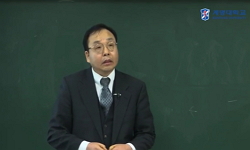This study explores the 'de-risking' strategy announced by the European Commission (EC) within the context of economic security. Originating from the President of the European Commission and echoed by high-ranking US officials, the de-risking approach...
http://chineseinput.net/에서 pinyin(병음)방식으로 중국어를 변환할 수 있습니다.
변환된 중국어를 복사하여 사용하시면 됩니다.
- 中文 을 입력하시려면 zhongwen을 입력하시고 space를누르시면됩니다.
- 北京 을 입력하시려면 beijing을 입력하시고 space를 누르시면 됩니다.

경제안보 패러다임에 따른 EU의 위험완화(de-risking) 전략: 미국의 대중국 정책과의 연결성과 향후 도전과제 = The EU's De-risking Approach under the Economic Security Paradigm: its Relation with China Policy of the United States and Future Challenges
한글로보기https://www.riss.kr/link?id=A108969384
-
저자
강유덕 (한국외국어대학교)
- 발행기관
- 학술지명
- 권호사항
-
발행연도
2024
-
작성언어
Korean
-
주제어
경제안보 ; 위험완화 ; 유럽연합(EU) ; 중국 ; 디커플링 ; 공급망 ; Economic Security ; De-Risking ; European Union ; China ; Decoupling ; Supply Chain
-
등재정보
KCI등재
-
자료형태
학술저널
- 발행기관 URL
-
수록면
80-114(35쪽)
- DOI식별코드
- 제공처
-
0
상세조회 -
0
다운로드
부가정보
다국어 초록 (Multilingual Abstract)
The study brings to light the following key points: firstly, the de-risking strategy of the US towards China, as articulated by US officials, encompasses broad areas such as diplomacy, security, and technology, whereas the EU's approach involves a nuanced recalibration, specifically addressing areas posing risks to economic security. Secondly, disparities emerge in the de-risking strategies proposed by the US and the EU due to distinct policy details concerning China, indicating potential cooperation and disagreement between two Atlantic partners. Thirdly, the EU's 'partner-competitor-rival' stance towards China is increasingly fraught with contradictions, as the 'competitor-rival' dynamic encroaches on the 'partner' relationship, eliciting strong negative reactions from China towards de-risking strategies by the US and Europe. Lastly, the EU's dependence on China is expected to diminish in core industries, aligning with policy objectives but persisting in general industries within the existing trade framework.
The study suggests several implications for Korea's economic security. Firstly, a comprehensive understanding of nuanced differences in de-risking strategies between the US and Europe is essential, given the potential differences in detail. Secondly, it is crucial to evaluate the opportunistic factors in the field where supply chain realignment is occurring. Thirdly, in response to economic security initiatives by major countries affecting domestic industries, proactive measures should be discussed to mitigate the impact of external shocks and possibly facilitate possible industrial restructuring.
This study explores the 'de-risking' strategy announced by the European Commission (EC) within the context of economic security. Originating from the President of the European Commission and echoed by high-ranking US officials, the de-risking approach has also gained support in the conclusion of the G7 summit, resulting in a broader policy stance of the Western countries towards China. The EU's strategy focuses on enhancing the stability of supply chains by diminishing economic dependencies on China and diversifying supply chains, aligning with its principle of strategic autonomy.
The study brings to light the following key points: firstly, the de-risking strategy of the US towards China, as articulated by US officials, encompasses broad areas such as diplomacy, security, and technology, whereas the EU's approach involves a nuanced recalibration, specifically addressing areas posing risks to economic security. Secondly, disparities emerge in the de-risking strategies proposed by the US and the EU due to distinct policy details concerning China, indicating potential cooperation and disagreement between two Atlantic partners. Thirdly, the EU's 'partner-competitor-rival' stance towards China is increasingly fraught with contradictions, as the 'competitor-rival' dynamic encroaches on the 'partner' relationship, eliciting strong negative reactions from China towards de-risking strategies by the US and Europe. Lastly, the EU's dependence on China is expected to diminish in core industries, aligning with policy objectives but persisting in general industries within the existing trade framework.
The study suggests several implications for Korea's economic security. Firstly, a comprehensive understanding of nuanced differences in de-risking strategies between the US and Europe is essential, given the potential differences in detail. Secondly, it is crucial to evaluate the opportunistic factors in the field where supply chain realignment is occurring. Thirdly, in response to economic security initiatives by major countries affecting domestic industries, proactive measures should be discussed to mitigate the impact of external shocks and possibly facilitate possible industrial restructuring.
동일학술지(권/호) 다른 논문
-
EU 온라인플랫폼 규제 -디지털시장법(DMA)의 주요 내용과 쟁점-
- 한국유럽학회
- 양지원
- 2024
- KCI등재
-
- 한국유럽학회
- Havertz Ralf Arnold
- 2024
- KCI등재
-
재외선거 우편투표 도입 사례와 함의: 스웨덴을 중심으로
- 한국유럽학회
- 장선화
- 2024
- KCI등재
-
대항해 시대와 식민제국주의 노예무역에 관한 경제사적 함의
- 한국유럽학회
- 김호
- 2024
- KCI등재




 KCI
KCI DBpia
DBpia






